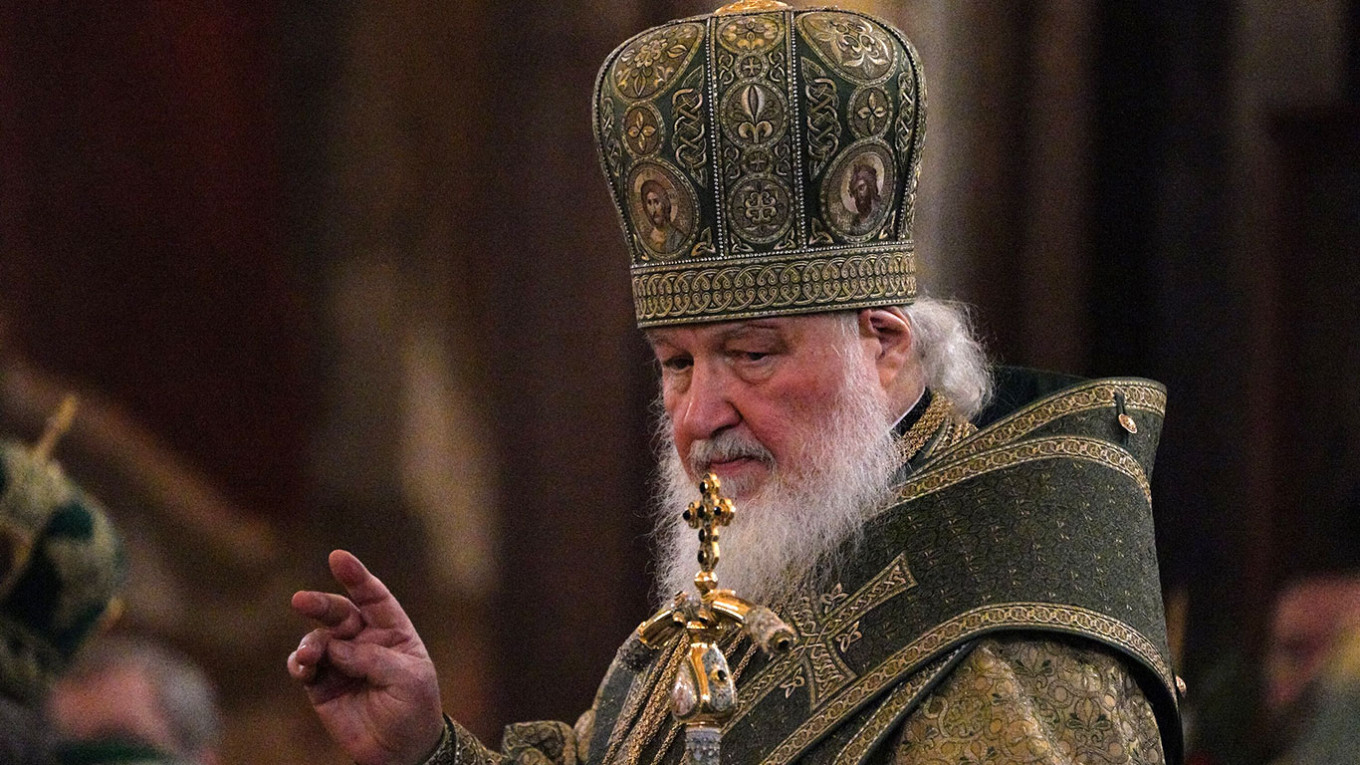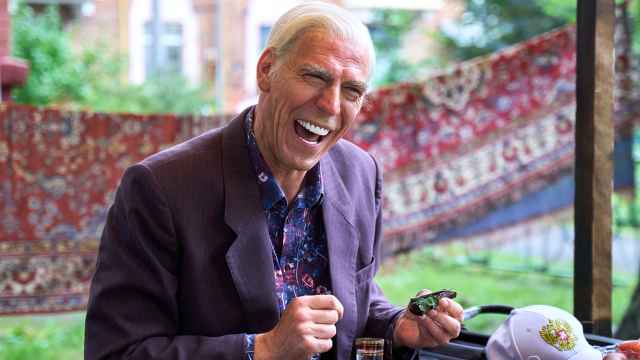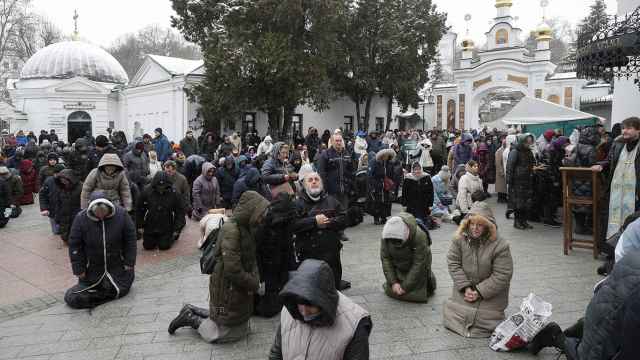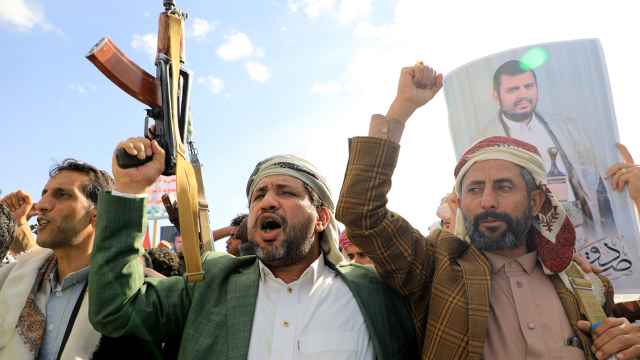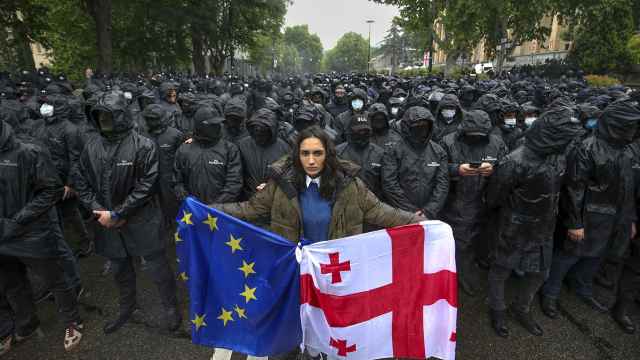Willy Fautré and Patricia Duval are European human rights advocates known for defending religious communities from persecution and interference by state authorities, often defending traditional believers from rigidly secular government policies.
But now they are accusing Patriarch Kirill, the spiritual leader of the Russian Orthodox Church, of inciting aggression and crimes against humanity by his outspoken support for Russia’s invasion of Ukraine and urging his indictment by the International Criminal Court (ICC). (Disclosure: I have cooperated closely with both.)
Citing the Court’s legal mandate, Fautré and Duval posted on the website of Human Rights Without Frontiers (HRWF), the Brussels-based organization Fautré co-founded and has led since 1989, an appeal to ICC Prosecutor Karim A. A. Khan. The appeal calls for actions “to hold personally accountable and prosecute Vladimir Mikailovitch Goundiaiev, known as Patriarch Kirill of Moscow and All Russia, for inspiring, inciting, justifying, aiding and abetting war crimes (Art. 8 of the Rome Statute) and crimes against humanity (Art. 7) perpetrated and being perpetrated by the Russian armed forces in Ukraine.”
In support of their charges, Fautré and Duval cite a sermon Kirill delivered at Moscow’s Cathedral of Christ the Savior on Feb. 27, three days after the invasion began. As documented by the Russian state Interfax service, Kirill prayed for the Lord to preserve the Russian land… “a land which now includes Russia and Ukraine and Belarus and other tribes and peoples.” As noted in a European Parliament Resolution, Kirill provided “theological cover” for Russia’s war aimed at absorbing the country within a greater Russia or neutralizing it as an independent democratic state.
The human rights defenders say that “the Patriarch castigated those who fight against the historical unity of Russia and Ukraine, targeting them as the ‘evil forces’.” Kirill has portrayed the military actions as a war against evil, saying in his sermon on March 6 that “we have entered into a struggle that has not a physical but a metaphysical significance,” a fight for “human salvation.” “All in all,” they noted, “Patriarch Kirill has backed [Russian President] Putin’s purifying ‘operation’ in Ukraine by equating it to a spiritual purification of Ukraine, a religious cleansing operation and religious crusade.”
Kirill’s rejection of tolerance for homosexuality seems to be at the heart of his support for bringing Ukraine back into Holy Russia. His sermons since the beginning of the war portray the Donbas, whose Russian-speaking citizens Putin has vowed to “liberate” from allegedly genocidal attacks by the Ukrainian government, as being subjected to pro-gay rights propaganda and policies they reject on religious grounds. In the same sermon, Kirill said that Russia would remain faithful to God’s law and continued, “we will never put up with those who destroy this law, including blurring the line between holiness and sin, and ever more so with those who propagandize sin.”
As reported in Newsweek earlier, Russia’s war against Ukraine can be characterized as a war to save people remaining faithful to the beliefs of the Russian Orthodox Church from pernicious pro-gay rights parades and ideology promoted by Western governments. This has been a longstanding preoccupation on the part of Russia’s Eurasianist political influencers like philosopher Alexander Dugin.
Throughout history, holy wars have been among the bloodiest, as they dehumanize enemies and legitimize extreme violence and cruelty. Patriarch Kirill has powerfully contributed to Russian state media propaganda and public discourse in which Ukrainian civilians are depicted as corrupt “accomplices to the Nazi regime” deserving of being deported or summarily executed — crimes against humanity that have now been widely documented.
Fautré and Duval argue that Patriarch Kirill laid the spiritual foundation to justify the aggression against Ukraine and blessed everyone carrying out this holy mission, including the war crimes and the crimes against humanity that are part of it.
Fautré and Duval cite ICC jurisprudence from the Bemba et al. case in 2016 suggesting that Patriarch Kirill may indeed be abetting the Russian military’s war crimes in Ukraine. The Court defined “abetting” as “the moral or psychological assistance of the accessory to the principal perpetrator, taking the form of encouragement of or even sympathy for the commission of the particular offence. The encouragement or support shown need not be explicit.”
Russia is not a party to the ICC, which therefore has no jurisdiction in the country, and an indictment of Kirill for abetting war crimes is thus highly unlikely. Hundreds of Russian Orthodox priests have signed a petition objecting to the war. But these factors do not make any less significant, and disturbing, the spectacle of the religious leader of 95 million Russians, and many more worldwide, violating the legal norms of a global institution set up to punish, and deter war criminals.
A Message from The Moscow Times:
Dear readers,
We are facing unprecedented challenges. Russia's Prosecutor General's Office has designated The Moscow Times as an "undesirable" organization, criminalizing our work and putting our staff at risk of prosecution. This follows our earlier unjust labeling as a "foreign agent."
These actions are direct attempts to silence independent journalism in Russia. The authorities claim our work "discredits the decisions of the Russian leadership." We see things differently: we strive to provide accurate, unbiased reporting on Russia.
We, the journalists of The Moscow Times, refuse to be silenced. But to continue our work, we need your help.
Your support, no matter how small, makes a world of difference. If you can, please support us monthly starting from just $2. It's quick to set up, and every contribution makes a significant impact.
By supporting The Moscow Times, you're defending open, independent journalism in the face of repression. Thank you for standing with us.
Remind me later.


